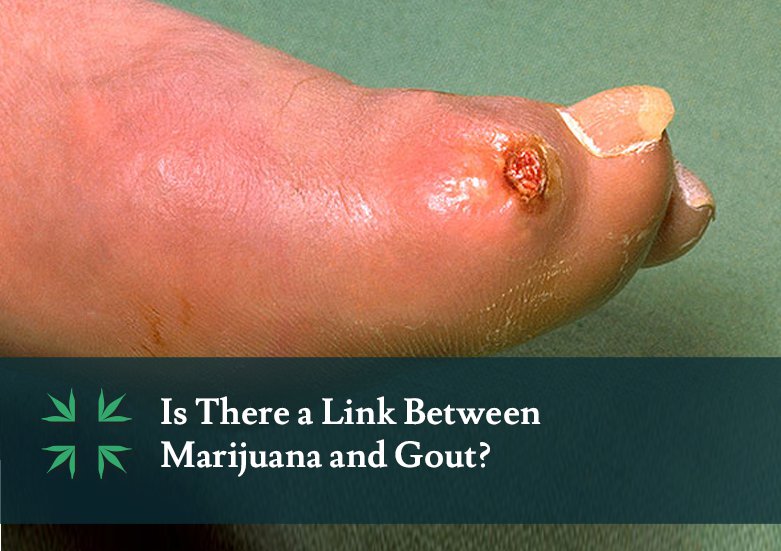Gout, or arthropathy, refers to sudden and severe pain in your body, and is a complex form of arthritis. It typically affects men, but can also affect women, particularly after menopause. It is caused when crystals of uric acid form in connective tissue or joints. Gout pain is hot, swelling and results in such great tenderness that the slightest bit of weight enhances the pain.
While most doctors recommend NSAIDs, OTC or prescription pain killing drugs, as coping mechanisms, some sources claim that medical marijuana can help decrease gout pain, because of THC’s ability to control swelling and inflammation. The belief is that marijuana interacts with other cannabinoid receptor sites inside the body and results in anti-inflammatory effects. This research was suggested by the Biomedical Research Centre of Sheffield Hallam University.
No evidence has been discovered indicating marijuana “cures” gout pain. However, NSAIDs come with their own risk, the likes of which is significant enough to demand warning labels. Marijuana has been proven as a temporary pain reliever.
San Francisco observed marijuana’s efficacy along with opiates. In the Clinical Pharmacology & Therapeutics paper, researchers found interaction between cannabinoids and opiates to be significant, and that the two components reduced pain greatly together than simply opiates on their own. Donald Abrams MD, of UCSF, stated that as a cancer doctor he was motivated to find safer treatments for chronic pain, and that patients in the study did not suffer any nausea, vomiting, or loss of appetite.
Of course, even though marijuana does not have any physical side effects for regular use, pain relief is not a cure for gout. Gout can be significantly reduced by changing diet and avoiding foods rich in purines, which tend to increase the uric acid produced. These foods include meat, beer, and sugary drinks.
Nevertheless, medical marijuana is an effective pain-relieving drug and one that should be studied more for its inflammation-decreasing effects.

Leave A Comment